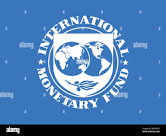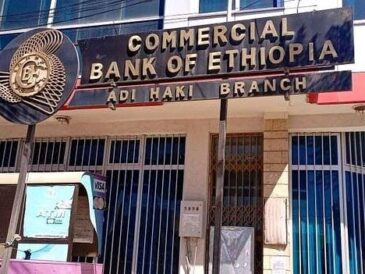Abuja, March 5, 2024 – The International Monetary Fund (IMF) has commended the Central Bank of Nigeria (CBN) for increasing banks’ lending rates in the country.
The Monetary Policy Committee of the CBN, had last week, raised the Monetary Policy Rate (MPR) to 22.75 percent from 18.75 percent.
The MPR is the nominal anchor of banks’ lending rates in the country.
The hike of the MPR has received wide condemnations by some local experts in the last one week.
The IMF, however, said the hike would help to contain inflation and pressures on the naira.
It issued a statement on Tuesday at the end of the IMF staff visit to Nigeria.
“The team welcomed the Monetary Policy Committee’s decision to further tighten monetary policy.
“The MPC increased the policy rate by 400 basis points to 22.75 percent, for a total tightening of 1,025 basis points since May 2022.
“This decision should help contain inflation, which reached 29.9 percent year-on-year in January 2024, and pressures on the naira,” part of the statement said.
The IMF team, which was led by the IMF Mission Chief for Nigeria, Axel Schimmelpfennig, visited Lagos and Abuja from Feb. 12 to Feb. 23, 2024, to hold discussions for the 2024 Article IV Consultations with Nigeria.
The statement read: “Nigeria’s economic outlook is challenging. Economic growth strengthened in the fourth quarter, with GDP growth reaching 2.8 percent in 2023. This falls slightly short of population growth dynamics.
“Improved oil production and an expected better harvest in the second half of the year are positive for 2024 GDP growth, which is projected to reach 3.2 percent, although high inflation, naira weakness, and policy tightening will provide headwinds.”
The statement said with about eight percent of Nigerians food insecure, addressing rising food insecurity should be the immediate policy priority of the government.
“In this regard, staff welcomed the authorities’ approval of an effective and well-targeted social protection system. The team also welcomed the government’s release of grains, seeds, and fertilisers, as well as Nigeria’s introduction of dry-season farming.
“Recent improvements in revenue collection and oil production are encouraging. Nigeria’s low revenue mobilisation constrains the government’s ability to respond to shocks and promote long-term development.
“Non-oil revenue collection improved by 0.8 percent of GDP in 2023, helped by naira depreciation. Oil production reached 1.65 million barrels per day in January as a result of enhanced security. The capping of fuel pump prices and electricity tariffs below cost recovery could have a fiscal cost of up to 3 percent of GDP in 2024,” he asserted.
The IMF said that the recently approved targeted social safety net programmeme providing cash transfers to vulnerable households needed to be fully implemented “before the government can address costly, implicit fuel and electricity subsidies in a manner that will ensure low-income households are protected.”
The IMF has reduced its forecast for Nigeria’s economic growth to three percent in 2024, down from 3.1 percent projected in October 2023. (GBN)





